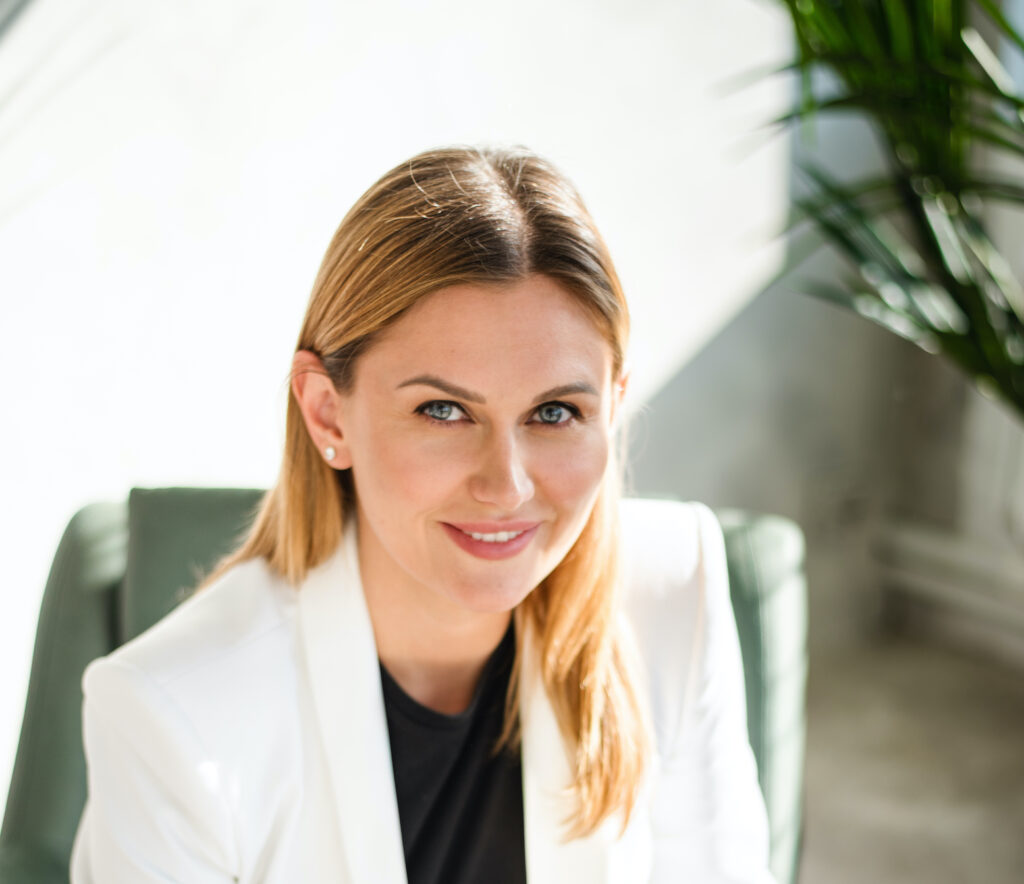Alisa Lynn’s journey to becoming a key player in venture capital is anything but conventional.
As a young girl, she became captivated by gaming when her mother brought home an 8-bit Nintendo console from the U.S., and her passion for gaming has continued ever since. This early interest led her down a path that would eventually see her rise to VP of Marketing for the largest multiplayer online game publisher in Eastern Europe.
But Lynn’s career track wasn’t always clear. After spending nearly a decade performing in an ice circus—“spinning fiery hula hoops on skates,” as she describes it—Lynn sought a shift in her career after becoming a parent. She joined the world of gaming startups, and her trajectory in the tech world began to take shape.
More recently, her journey as an investor took a pivotal turn when she met Artem Sokolov, the founder of SKL.vc through a mutual connection. As a seasoned entrepreneur with three successful exits and several failed projects, Lynn sought a new challenge by age 45. SKL.vc provided the ideal opportunity, offering a dynamic environment where she could rapidly test and develop new ideas.
Through SKL.vc, Lynn and Sokolov are now focused on creating large-scale, ambitious consumer projects, positioning themselves as hands-on co-founders who guide projects through multiple stages, ultimately spinning off the successful ones into new companies.
Icebreaker’s founder Daria Solovieva spoke to Lynn about the vision behind SKL.vc, their B2C model, which industries they’re most interested in,how many investments they are looking to make this year–as well as candid advice for female VC investors.

Icebreaker: In 2009, you founded Game Insight, a company specializing in developing mobile and online gaming. Can you tell me more about your interest and background in the gaming industry?
When I was growing up, my parents were theater and circus directors. After finishing school, I followed the family calling and started working in the circus as a performer. For nine years, I worked in an ice circus, spinning fiery hula hoops on skates. Sometimes it feels like I never stopped spinning hoops on skates–now it’s just a venture capital edition.
How do you know Artem Sokolov, and what brought you to SKL.vc in 2024?
I’m a serial entrepreneur with three successful exits and numerous failed projects. My journey has always followed a cycle: create something from scratch, shut it down, cry a bit, create something new, grow it, sell it, celebrate, and then start all over again.
For two years, I searched for “the one” project, launching and shutting down several along the way. Then, a mutual acquaintance introduced me to Artem, and I felt that the idea of a hypothesis factory, where you can test a lot of things in a short period, was exactly what I needed at this stage.
Our ambitions align—we both want to create big, large-scale projects.
What are your guiding principles, and how did you arrive at the venture builder model for SKL.vc?
Artem has explored various investment models throughout his entrepreneurial journey. We started as a venture investment company, building everything ourselves. Eventually, we arrived at a model where we seek out people with an entrepreneurial mindset—possibly even first-time founders or those who aspire to become entrepreneurs. We also look for those who are tired of the uncertainty of the venture model, the endlessly complicated fundraising process, and who want to work on a project with significant upside in a more comfortable environment.
We position ourselves as co-founders, providing product owners with all the necessary resources, from development to back-office support. We’re not an accelerator, not a fund, and not a traditional venture studio. We are the co-founders of our own projects. We take a significant, active role in the projects, guiding them from within the studio through multiple stages, and spinning off the successful ones to create new companies.
To find highly motivated and passionate founders, we recently launched a training camp program. The first batch, launched on July 21, had over 450 participants who pitched 276 ideas. Fourteen projects made it to demo day, showcasing the program’s success in identifying promising talent and ideas. We’re planning to launch the second batch this fall.
Why are you focusing on the B2C model in particular?
First of all, if you look at the statistics for venture investments in B2C projects over the last few years, you’ll see that it’s not a pretty picture. It’s a tough, mature, and a well-established market in nearly every segment.
Secondly, B2C allows you to build a real hypothesis factory. You can quickly test demand, purchasing power, and predict user behavior. Some of our products go live after just two-four weeks of development, and we can immediately start observing results and make real-time improvements. This kind of rapid iteration is nearly impossible in B2B.
Lastly, we really enjoy making an impact on the world. Both Artem and I are particularly interested in large-scale B2C projects. My love for this approach goes back to my time at Game Insight. When people ask, “What do you do?” I say, “I create games.” When people hear the name of the game they recognize and their eyes light up, it really makes it all worth it.
Are there industries/sectors you’re most interested in investing in this year?
Although we do not invest in developing our own technologies, we still keep a close eye on changes and actively adopt any technological innovations that emerge in the market. We are trying to predict how consumer behavior and consumption patterns will change with the help of new technologies.
Our focus this year includes a wide range of AI technologies and applications, including Large Language Models (LLMs), conversational domains, computer vision, machine learning-based matchmaking, prediction, Natural Language Processing (NLP), anomaly detection, process optimization, speech recognition and generative models.
We’re exploring these technologies across various verticals such as the creative economy, entertainment, video/movies/music production, digital avatars, health and medical technology, hobbies and lifestyle, fintech, and other AI-powered co-pilots and multitool solutions.
How many investments is SKL.vc aiming to make in 2024 as well as next year?
Our current funnel involves testing over 1,000 hypotheses a year to ultimately produce three-five fast-growing companies.
By the end of this year, we will invest around $20 million in hypothesis validation.
Women still represent a minority in the VC world–do you have any advice for women starting out on their journey?
I could write a whole book on the subject. As a woman in business and a mother of three (two of whom are daughters), I definitely feel qualified to give advice.
If I had to choose just one, I would say this: Before diving into business, make sure you have a supportive, understanding partner who shares the load of family responsibilities—ideally, a feminist.
What are some of the questions/challenges that keep you up at night the most when it comes to SKL.vc or your portfolio companies?
We’re living in a time of technological turbulence and singularity. Everything is changing so rapidly.
Every morning I anxiously check the news, fearing that yet another of our hypotheses might have been rendered obsolete by an update from a big corporation or a newly invented technology.
The pace of change is so fast that it’s incredibly challenging to keep up and navigate through this turbulence, but that adrenaline rush is exactly what excites us.
In the next five years, we are looking for companies that can become potential decacorns—companies with a valuation exceeding $10 billion. Additionally, we want to back at least 10 companies generating over $100 million in annual revenue.
And on top of that, we want to be able to answer the question: “So, what do you do?” by pointing to a service we’ve built and hearing in response: “Oh, wow! I use it all the time, it’s amazing!”



Add comment